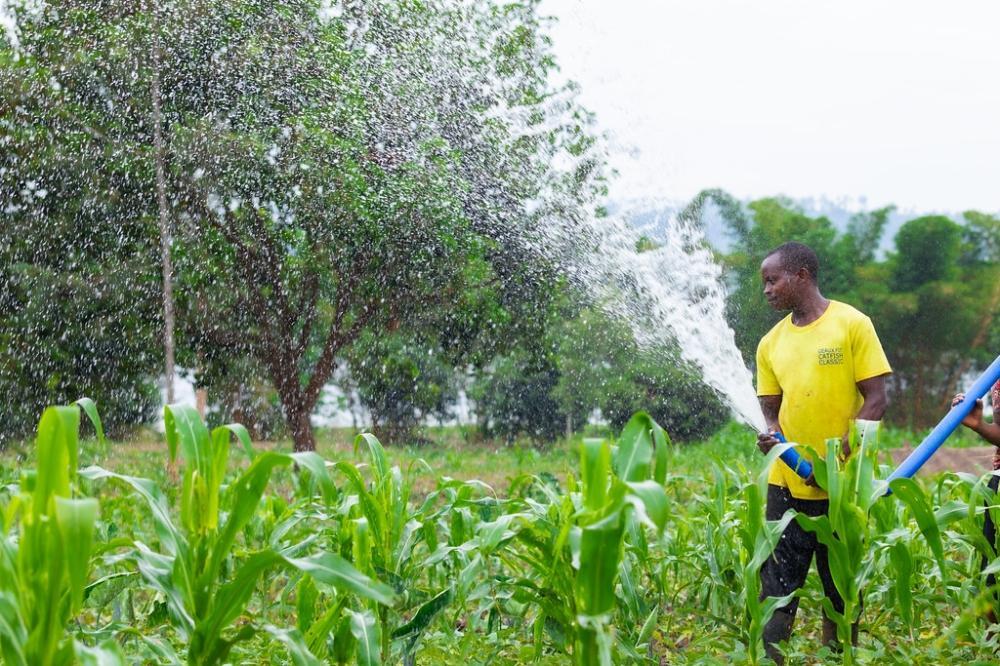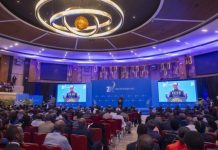Africa-Press – Rwanda. The Parliament’s Public Accounts Committee (PAC) has called on the government to ensure efficiency in public finance management, as it moves to procure diesel-powered generators – which it said are worth around Rwf2 billion – to test an irrigation project infrastructure in Kirehe District.
This call was made on Monday, June 30, during a PAC hearing with officials from Rwanda Agriculture and Animal Resources Development Board (RAB). The hearing addressed issues raised in the Auditor General’s report for the financial year ended on June 30, 2024.
The report exposed inefficiencies in an irrigation and watershed development project in Mpanga Sector, Kirehe, a district in drought-prone Eastern Province.
Although the project, completed in August 2023, involved the installation of five water pumps—four of which are intended to operate simultaneously—only one has been functional due to electricity shortages.
As a result, the irrigation system is underperforming, which hinders the attainment of its intended impact, according to the report.
On January 9, 2024, the report indicated, the Ministry of Infrastructure (MININFRA) and Agriculture requested Rwanda Energy Group (REG) to resolve the power issue, but by the time of the audit in December 2024, the problem remained unresolved.
RAB Director General Telesphore Ndabamenye said the Mpanga hillside irrigation project is valued at over $18 million (approx. Rwf26 billion) and is designed to irrigate 650 hectares.
While infrastructure construction was completed, the lack of power to run the pumps – meant to ensure that water taken from River Akagera is adequately channelled into farmers’ fields – has delayed the full testing and handover of the project.
“We held extensive discussions with infrastructure entities, including REG and MININFRA, and agreed to procure generators to power the pumps for final testing and commissioning,” Ndabamenye said.
PAC members questioned why the required electricity supply was not accounted for during the project’s planning phase.
PAC Chairperson Valens Muhakwa said that sector officials had previously – in 2024 – promised the issue would be resolved within a year.
“Should the investment remain idle for lack of electricity?” he asked, urging better coordination between agriculture and infrastructure sectors to avoid such costly setbacks.
Ndabamenye explained that while the energy requirement was known, funding to build a high-capacity power line to the site was not available.
He said constructing a dedicated electricity line from Nyamugali – from Rusumo hydropower plant – to the site would cost over Rwf12 billion and take at least one year and a half.
“Generators offer an interim solution that allows us to commission the project and proceed with the handover. They are public assets that can later serve other national needs,” he said.
The generators, currently being procured in partnership with REG, are expected to arrive in August, with project completion now projected for October following a four-month contract extension, Ndabamenye said.
However, MP Eugene Mussolini expressed concern over the plan to spend Rwf2 billion on generators for temporary use, arguing that investing in a permanent electricity solution would be more cost-effective.
“Are we adding more money to an already idle investment?” he asked.
Officials from RAB and MINAGRI told parliamentarians that the generators would remain useful beyond the project, indicating that once testing is complete, REG could repurpose the equipment as a strategic energy backup across the country.
Florence Uwamahoro, RAB Deputy Director General in charge of Agriculture Development, held that the actual electricity supplied was insufficient, despite prior indications of the power needs.
The Mpanga irrigation project requires around 4MW of electricity, according to the updated 2024 Rwanda Electricity Distribution Master Plan by REG.
Uwamahoro said that after discovering the gap between projected and available power, discussions with REG and MININFRA led to the decision to procure generators as an interim solution.
“In the absence of the Nyamugali power line to bring adequate electricity from the Rusumo hydropower plant, we needed an alternative to fully test and validate the system,” she said, underscoring that the generators would serve broader national interests beyond the current project.
Muhakwa urged a cost-benefit assessment of generator use versus direct electricity supply and called for urgent action to implement a sustainable power solution.
For More News And Analysis About Rwanda Follow Africa-Press






